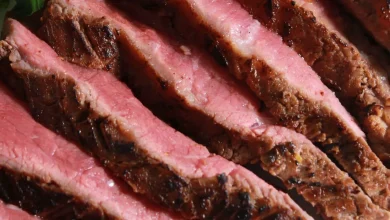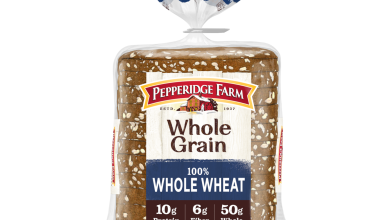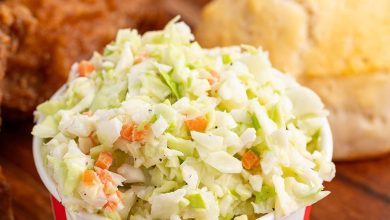Delicious Holiday Fruitcake Recipe: Nutritional Breakdown & Dietary Tips
Fruitcake Nutritional Information & Ingredients Overview
Fruitcake is a beloved traditional dessert, commonly prepared during the holiday season. Known for its rich texture and combination of dried fruits, nuts, and spices, fruitcake is a flavorful and satisfying treat. Below is the detailed nutritional breakdown and ingredients overview of this delightful cake, perfect for festive gatherings or as a special homemade gift.
Nutritional Information per Serving:
- Energy: 324 kcal
- Protein: 2.9 g
- Total Fat: 9.1 g
- Saturated Fat: 1.048 g
- Carbohydrates: 61.6 g
- Fiber: 3.7 g
- Sugar: 27.42 g
- Minerals:
- Calcium: 33 mg
- Iron: 2.07 mg
- Magnesium: 16 mg
- Phosphorus: 52 mg
- Potassium: 153 mg
- Sodium: 101 mg
- Zinc: 0.27 mg
- Copper: 0.05 mcg
- Manganese: 0.22 mg
- Selenium: 2.0 mcg
- Vitamins:
- Vitamin C: 0.5 mg
- Thiamin (B1): 0.05 mg
- Riboflavin (B2): 0.099 mg
- Niacin (B3): 0.791 mg
- Vitamin B6: 0.046 mg
- Folate: 3.0 mcg
- Vitamin B12: 0.01 mcg
- Vitamin A: 7.0 mcg
- Vitamin E: 0.9 mg
- Vitamin D2: 0.0 mcg
Allergen Information:
Fruitcakes typically contain common allergens such as wheat (gluten), nuts (e.g., walnuts, pecans), and eggs. For those with sensitivities, it is essential to modify the recipe or check ingredient labels carefully. This cake may also contain dried fruits, which could be allergens for some individuals.
Dietary Preferences:
- Vegetarian: Suitable for vegetarians if no animal-based products (like gelatin) are used.
- Gluten-Free: Easily adaptable by using gluten-free flour or a gluten-free cake mix for those with gluten sensitivities.
- Nut-Free: Can be made nut-free by omitting the nuts and choosing fruitcake recipes that exclude nuts.
- Low-Sugar: Can be adjusted to suit a lower-sugar diet by reducing the amount of sugar or using sugar substitutes.
Advisories:
- Portion Size: Though fruitcake is a nutrient-dense treat, it’s high in calories and sugar, so moderation is key, especially if you’re keeping an eye on your daily caloric intake or sugar consumption.
- Storage: Fruitcakes tend to improve in flavor over time, and they store well. Ensure to wrap them properly and store in a cool, dry place to maintain their freshness.
Conclusion:
Fruitcake is more than just a holiday dessert; it’s a rich combination of tradition, flavor, and texture. With its high carbohydrate content, it serves as an energizing treat while offering a variety of vitamins and minerals. Whether you’re making a homemade fruitcake for yourself or sharing it with others, this timeless recipe brings both warmth and joy to every occasion. Just be mindful of the allergens and adjust it as needed to meet dietary preferences, and you’ll have a delightful treat ready to enjoy.








